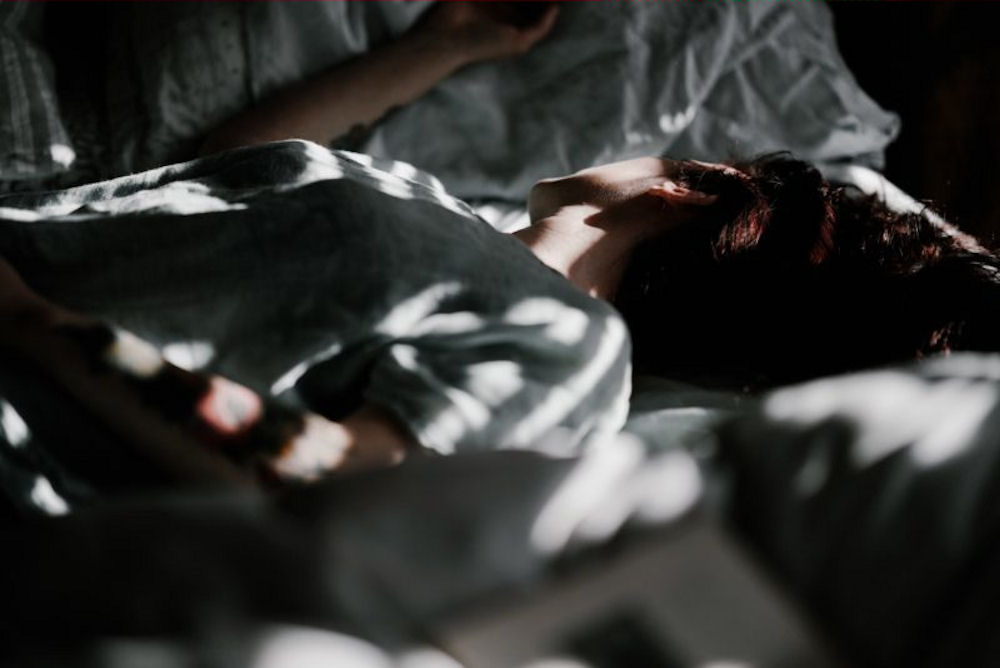Teens and Atypical Depression: Treatment, Causes, and Key Signs
Treatment for atypical depression is a must, just as it is for other types of depression in teens. Yet it can be difficult to spot atypical depression and easy to mix it up with other mental health issues. It’s important that caregivers know what to look for – and what steps to take if they notice the signs.
Read on to learn about this often misunderstood depressive disorder, including common atypical depression symptoms in teens and the most effective approach to treating the disorder.
Table of Contents:
- What is Atypical Depression?
- Atypical Depression Symptoms in Teenagers
- Causes of Atypical Depression
- Treatment Options for Teen Atypical Depression
- Frequently Asked Questions (FAQs)
- Help for Atypical Depression at Paradigm Treatment
Key Highlights
- Atypical depression is a form of major depression marked by occasional improvements in mood.
- Teens with atypical depression may experience excessive tiredness, increased appetite and weight gain, heavy or leaden limbs, and intense sensitivity to rejection.
- Causes include brain chemistry imbalances triggered by trauma, stress, illness, substance use, and family history.
- Treatment often involves MAO inhibitors or SSRIs, combined with psychotherapy.
- Teens with atypical depression are at risk of self-harm or suicidal ideation.
- Inpatient programs may be necessary if outpatient treatments fail or risks increase.
- Early diagnosis and proper treatment improve symptom management and outcomes.
What is Atypical Depression?
Atypical depression is a subtype of major depressive disorder (MDD). It is characterized by occasional improvements in underlying mood, generally in response to good news or positive interactions with others.
This notion of depressive symptoms coming and going is unique to atypical depression. And it’s an important distinction when comparing atypical depression to the mild, subclinical depression that many people experience from time to time, as well as clinical depression, which often comes with an inability to experience a positive mood regardless of circumstances.
Note that atypical depression is not the only possible deviation on MDD. Other types of depression that teens may experience include seasonal affective disorder (SAD), premenstrual dysphoric disorder (PDD), and bipolar disorder.
Atypical Depression Symptoms in Teenagers
Teens with all kinds of depression may appear happy or content even when they’re feeling sad or depressed. So how do you know if a teen’s momentary change in mood is due to atypical depression or just a masking of symptoms? You look for other symptoms of atypical depression, including:
- Excessive sleep (hypersomnia)
- Increased appetite and weight gain (hyperphagia)
- Heaviness or weakness in the limbs
- Extreme sensitivity to perceived or actual rejection
A diagnosis of atypical depression generally requires that an individual be experiencing two or more of the symptoms above in addition to occasional mood reactivity.

Causes of Atypical Depression
Depression is caused by an impairment of the brain circuits that regulate mood and foster communication between different parts of the brain. In that sense, it’s a chemical disorder, and this is true of atypical depression as well as other types of depression.
However, depression is not an entirely chemical phenomenon. Events or lifestyle factors are thought to trigger depressive episodes as well, and people are more at risk for developing depression if they have certain risk factors such as:
- Interpersonal conflict
- Experiencing a significant loss
- A history of abuse
- Undergoing a significant life change, such as a divorce or long-distance move
- A serious illness like cancer or heart disease
- Alcohol or drug use
A family history of depression is also considered to be a risk factor, and teens who experience atypical depression are more likely to have family members who’ve also experienced this type of MDD.
Treatment Options for Teen Atypical Depression
It’s not just symptoms that set atypical depression apart from other types of depression. Response to treatment differs, too, making it essential that a teen’s depression is accurately diagnosed at the earliest stage possible.
People with atypical depression do not tend to respond to the tricyclic antidepressants that are a mainstay of major depression treatment. They do, however, often respond to monoamine oxidase inhibitors (MAOIs) and, in many cases, to selective serotonin reuptake inhibitors (SSRIs), making these a much more viable approach to treating the illness.
Of course, medication is not the only form of treatment. Psychotherapy, also known as talk therapy, is an effective method of treatment for those with atypical depression, providing a safe space to process feelings, relationships, and experiences. In therapy, teens work on identifying and changing unhealthy thoughts and behaviors, setting realistic personal goals, exploring coping strategies and problem-solving techniques, and finding ways to relieve the disruptive, unpredictable symptoms of atypical depression.

Frequently Asked Questions (FAQs)
How common is atypical depression?
Atypical depression is a common subtype of depressive disorders seen frequently in clinical settings. It occurs more often in females and typically begins in adolescence or early adulthood. Despite its name, atypical depression is not rare and represents a significant proportion of depression cases.
What is the difference between typical and atypical depression?
Typical or melancholic depression is a biologically rooted, severe form characterized by persistent low mood that does not improve with positive events, accompanied by neurovegetative symptoms such as loss of appetite, insomnia, and psychomotor changes. Atypical depression, on the other hand, features mood reactivity, meaning the person’s mood temporarily improves in response to positive stimuli. It typically includes reversed neurovegetative symptoms such as hypersomnia (excessive sleep), hyperphagia (increased appetite/weight gain), leaden paralysis (heavy limbs), and marked sensitivity to interpersonal rejection.
Is atypical depression worse than typical depression?
Atypical depression tends to have an earlier onset and a more chronic, long-lasting course than melancholic depression. It can lead to substantial functional impairment, mainly due to rejection sensitivity and chronicity, but it is not necessarily more severe. Rather, it differs in symptom profile and progression.
Is atypical depression harder to treat?
Atypical depression may respond better to specific antidepressants like MAO inhibitors, but psychotherapy and standard treatments are effective, too. Treatment can be challenging due to chronicity and symptom differences, but the condition is treatable.
How do I know if my teen needs more intensive care, like a residential program?
Your teen may require more intensive care if outpatient treatments do not improve symptoms, if there is severe suicidal ideation or behavior, significant impairment in daily functioning or school attendance, or if concurrent disorders require close monitoring.
Help for Atypical Depression at Paradigm Treatment
Atypical depression is as serious as other types of depression. Teens with the conditions are at risk for dangerous behaviors such as self-harm or suicidal ideation or attempts, and should be professionally treated and monitored to ensure the best outcomes.
The preferred course of treatment for all types of depression is usually a combination of therapy and medication. Note that your child may need to try several different medications or combinations of medications before finding the formula that works best for them. Therapy, in addition to having its own benefits, is a helpful way to monitor how your child is responding to a medication and whether it’s effective at relieving their symptoms.
If your child’s atypical depression is significantly impairing their day-to-day life, more intensive care is available. This includes residential teen depression treatment programs like the one here at Paradigm. If you are having concerns, we encourage you to contact us to discuss tailored treatment options and how to help your teen thrive now and in the years to come.
This content was reviewed by Paradigm’s leadership team, which includes licensed therapists, clinical psychologists, psychiatrists, medical professionals, and program directors with expertise in family therapy, psychiatry, social work, nursing, and program management.
Other Youth Mental Health Topics You May Find Helpful…
What Teen Depression Really Feels Like According to a 16-Year Old
In a recent Huffington Post article, one adolescent lays it all out on the line. She cuts through the exaggeration most teens use to describe their lives and gets serious […]
Continue ReadingDepression and Happiness Pursuit: A Surprising Link
Recent studies show that there is a surprising link between depression and happiness pursuit – but how can chasing happiness lead to feelings of depression? Nobody wants to feel depressed. […]
Continue ReadingTeen Depression, Anxiety, PTSD and Their Neurological Connections
Mental health disorders are nothing to be ashamed of. They’re very common, and anybody can suffer from one. Mental health disorders like anxiety, depression, and post-traumatic stress disorder (PTSD) are […]
Continue ReadingParenting a Teen with Holiday Depression
The holidays are a difficult time for many people. The expectations of others around the holiday season can cause stress and exacerbate existing stress which leaves many, including teenagers, vulnerable […]
Continue Reading



